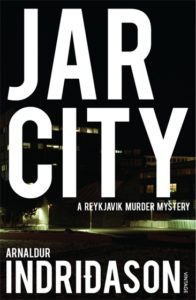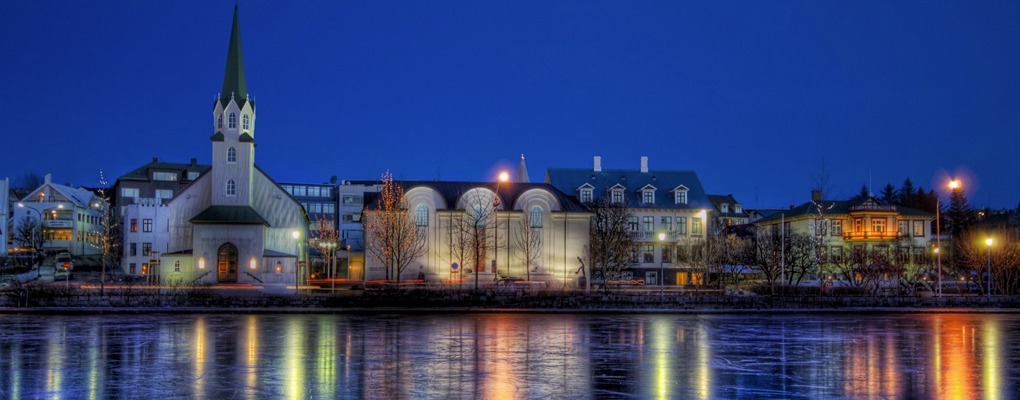Books
Arnaldur Indridason: The Importance of Reykjavík
A historian, former journalist and film critic, Arnaldur Indridason turned to writing crime fiction in part because of his interest in film. He chose to set his stories in Reykjavík, a potentially challanging setting if you consider that Iceland has one of the lowest crime rates in the world. To celebrate the publication of Indridason’s new novel Reykjavík Nights, we asked the Icelandic writer to tell us about the importance of the city to his work.
“I learned a lot from going to the movies, especially about bad storytelling. I really think I learned most from the bad movies – there are so many more of them. I sometimes visualise what I am writing as if it were the scene in a film, and I’m always looking for realism. Especially in the characterisation. You have to have believable characters for the reader to care about. That’s why I like The Wire so much. I believe in everything that happens in those stories.
Reykjavík is just like any other European city except it has cleaner air. Luckily we don’t have many murders each year but the drug scene is getting nastier. I don’t know much about Reykjavík’s dark side, though I don’t think it’s very exciting. The Nordic countries are welfare states and we crime fiction writers try to find holes in the system, to prod at it and subject it to critical examination.
 I believe crime novels can be as challenging as literary fiction if you make them believable. I was inspired by the social realism portrayed in the work of Maj Sjöwall and Per Wahlöö, who developed their characters and described the everyday life of policemen who were not superheroes but ordinary people. Like many others, I was fascinated by this. Some of the crime writers in Iceland are journalists and maybe crime writing which deals with social issues is a kind of journalism itself. Crime novels offer a great way to examine all aspects of society and I think that’s what Scandinavian writers are doing so well. And readers are picking up on that.
I believe crime novels can be as challenging as literary fiction if you make them believable. I was inspired by the social realism portrayed in the work of Maj Sjöwall and Per Wahlöö, who developed their characters and described the everyday life of policemen who were not superheroes but ordinary people. Like many others, I was fascinated by this. Some of the crime writers in Iceland are journalists and maybe crime writing which deals with social issues is a kind of journalism itself. Crime novels offer a great way to examine all aspects of society and I think that’s what Scandinavian writers are doing so well. And readers are picking up on that.
I always write for my Icelandic readership because I don’t know how to write for anyone else and the success of my books abroad has not changed that. I think this is why they are successful elsewhere. Readers are always on the lookout for something different and what could be more different than a detective from Reykjavík, Iceland? I try to get as much mileage out of it as I can – the setting, the long winter nights, the long summer days, the frequently bad weather, the wilderness – to entertain my readers, and it seems to appeal to my foreign audience.
I really don’t read much crime these days. I read Icelandic literature, poems and history. But my favourite American crime writer is Ed McBain. I like the realism and simplicity of his work. In general I tend to like crime stories which are low on action but big on the human touch, more interested in character than guns. I regard crime novels as literature about the human condition, the things we do or don’t do to improve our lives and the lives of those around us. I think that’s what all my books are about.”
 Arnaldur Indridason published his first crime novel in 1997, but his international breakthrough came in 2000 with Jar City. Since then his books have been translated into 38 languages and Jar City has been made into a film. Indridason’s novels have sold more than six million copies worldwide and have received a multitude of awards and nominations, among them the Nordic Crime Novel Prize two years running and the CWA Gold Dagger Award.
Arnaldur Indridason published his first crime novel in 1997, but his international breakthrough came in 2000 with Jar City. Since then his books have been translated into 38 languages and Jar City has been made into a film. Indridason’s novels have sold more than six million copies worldwide and have received a multitude of awards and nominations, among them the Nordic Crime Novel Prize two years running and the CWA Gold Dagger Award.
“When I started writing I quickly discovered that the suspense novel genre was just what I was looking for as a writer. Secrets – finding out what they are, uncovering them bit by bit at the right time, discovering why they exist and why they have been kept hidden, the impact they have on relationships, the art of keeping secrets, the danger that is involved – all that wonderful stuff.
My books are not violent except for Silence of the Grave, which is about domestic violence, so I wanted to show it in all its ugliness. They are more about the impact of criminal acts on the lives of the victims and on the criminal involved. They are not about the Icelandic crime scene so much as about how crimes in general affect people’s lives, and I think these are universal themes.
I don’t want to preach but there are issues I do want to write about, such as domestic violence, because I think it’s despicable. Most of my books are about families as well, and the relationships within families – both the positive and negative sides. I think the family is a very important institution. The fact that we don’t have that much crime in Iceland (actually we have all the crimes going, but on a smaller scale perhaps) presents me with a challenge. So my stories tend to be psychological, building on an inner tension, rather than showcasing major atrocities, explosions and fireworks. If there is any one message in my books, and I’m not big on messages, it is this: take good care of your children”.
The wonderful Reykjavík Nights is available to buy now. To find out more about the man himself, why not check out Ten minutes with… Arnaldur Indridason?


Please note: Moderation is enabled and may delay your comment being posted. There is no need to resubmit your comment. By posting a comment you are agreeing to the website Terms of Use.